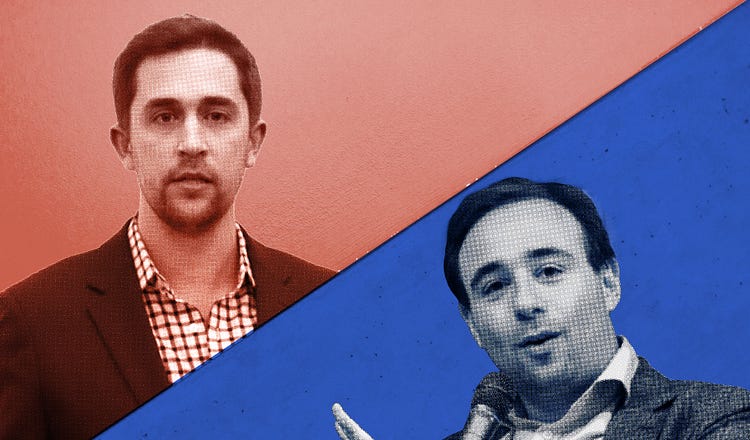Weekend Listening: The Right Way to Fight Illiberalism

Christopher Rufo, left, and Yascha Mounk. (Illustration by The Free Press; photos via Getty)
Christopher Rufo and Yascha Mounk debate.
630
In the past few months, many people were shocked to see the moral rot that has taken hold inside American universities.
For example, they were surprised to learn that:
Continue Reading The Free Press
To support our journalism, and unlock all of our investigative stories and provocative commentary about the world as it actually is, subscribe below.
$8.33/month
Billed as $100 yearly
$10/month
Billed as $10 monthly
Already have an account?
Sign In


